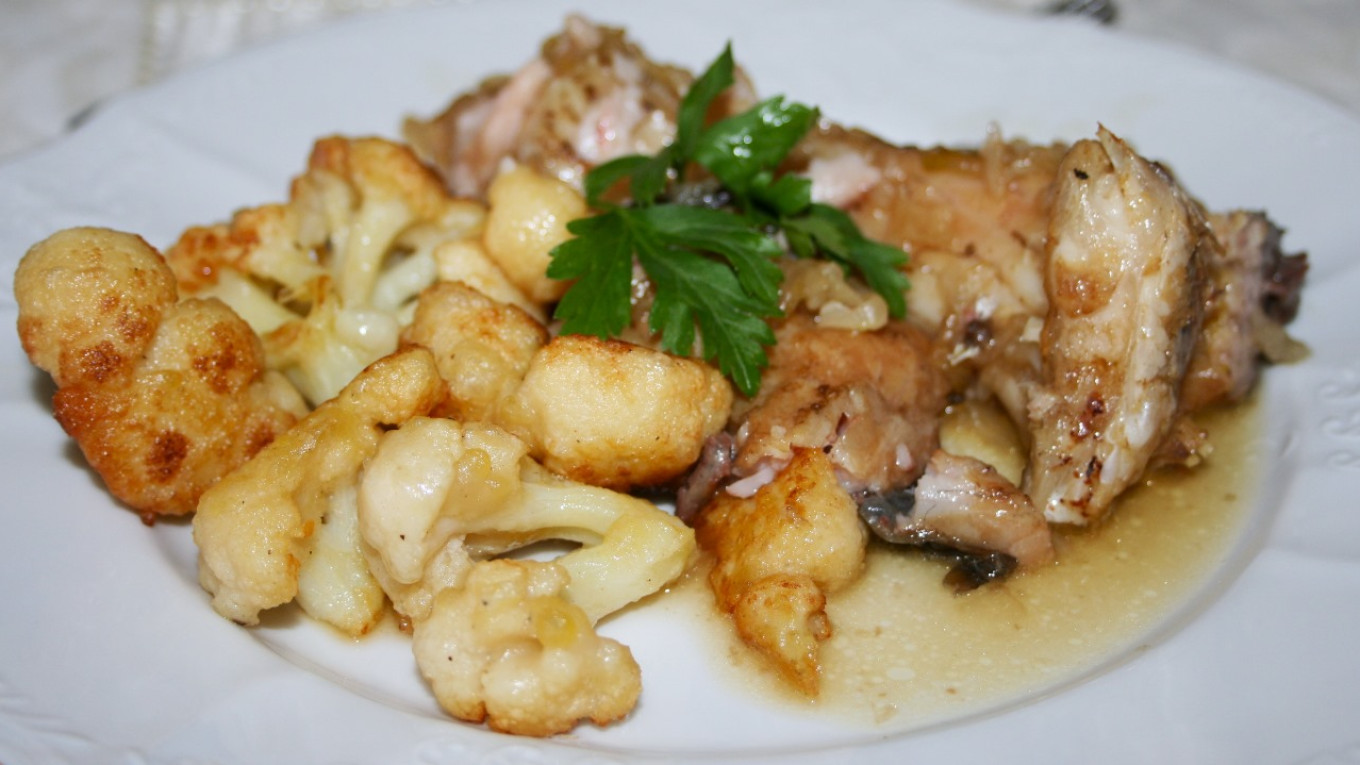In the traditional cuisine of Russia, where most people were Orthodox Christians, there are more than 200 days of fasting a year. During that time no meat is allowed, of course, but what about other products, like spices?
They played an important role in Russian cuisine, although the roles were different from those used in other countries. What function did spices fulfill in medieval cuisine? The first was flavor. To add different tastes to dishes that were rather boring, to make them more tasty. The second was preservation. Spices were added to preserve food longer in the absence of a refrigerator — or, more often, to disguise the fact they were no longer fresh.
Finally, spices in European cuisine were also raw materials for making medicines. Most of the spices used were also known in Russian cuisine, although, of course, they were known by aristocrats in palaces, not peasants in their huts. But there were two circumstances that made their use different.
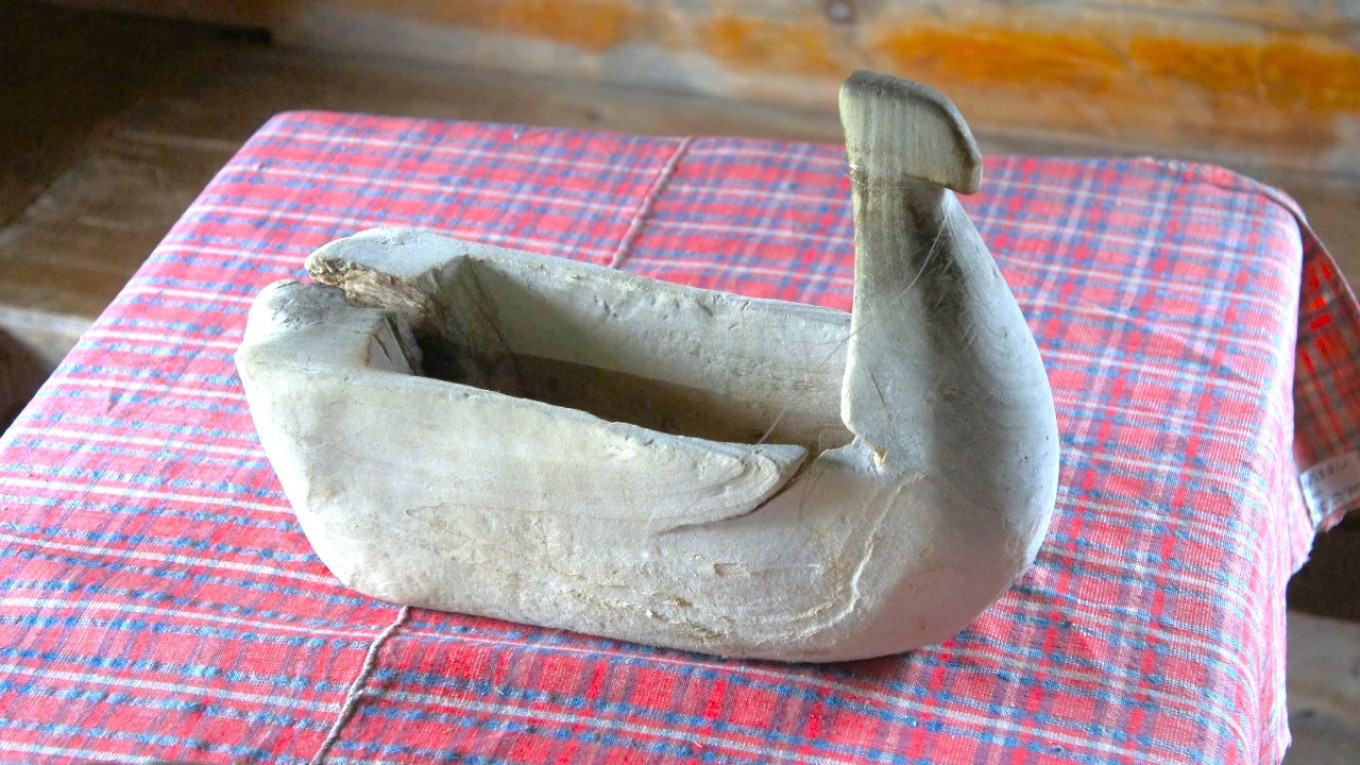
The main one was the wide popularity of onions and garlic as "spices." Both of these plants were used both to add flavor to dishes and to preserve them for a long time. Is there any point in adding elegant seasonings to a dish flavored by a heavy dose of garlic?
The second circumstance was Lent. Spices were not forbidden during this period, but fasting is conscious self-restraint, a time when a person does not partake in pleasures. So even for Patriarch Nikon (as reported in his "Housekeeping Book" in the 17th century), only on the occasion of major holidays were dishes “seasoned with foreign spices." Only for Easter saffron, figs, pepper and almonds were bought "in negligible quantities."
Nikon's ordination did not allow him to eat meat or drink wine, and the Metropolitan's food during fasts was virtually the same as the the usual food of the common people. The only exceptions were some treats sent to Nikon from the Tsar or Tsarina, and sometimes expensive fish. But the usual food of the Metropolitan and his entourage consisted of bread, onions, horseradish, turnips, mushrooms, caviar, garlic, butter, honey and kalachi (white bread rolls).

Palace and boyar dinners had no such restrictions even during Lent. The "Inventory of Royal Dishes" (1610-1613) noted that “during the Christmas Fast the sovereign was served white pike soup flavored with 1/6 ounce of pepper,” “karavai [bread] made with saffron,” “pike prepared with 1/8 ounce of cinnamon” and pike stew made with a full ounce of cloves.”
According to Russian historian Nikolai Kostomarov, in the 16th century "soup made with cloves was called black soup, with pepper — white soup, and with no spices at all — bare soup.”
In the memoirs of Paul Aleppsky, who visited Russia half a century later (in 1653), there is a description of the table of Tsar Alexei Mikhailovich "filled with all kinds of Lenten dishes seasoned with saffron and various spices."
The first spices began to appear on the Russian table in the 11-13th centuries, and a couple of centuries later saffron, ginger, nutmeg and mace, cinnamon, black pepper and allspice are often mentioned in documents and memoirs. Many spices were put on the table as condiments, while others were used in cooking. Spices were used in dishes eaten on both fasting and non-fasting days. The addition of many spices was not only for flavor but also for additional nutrients, especially on fasting days when the diet was much poorer.
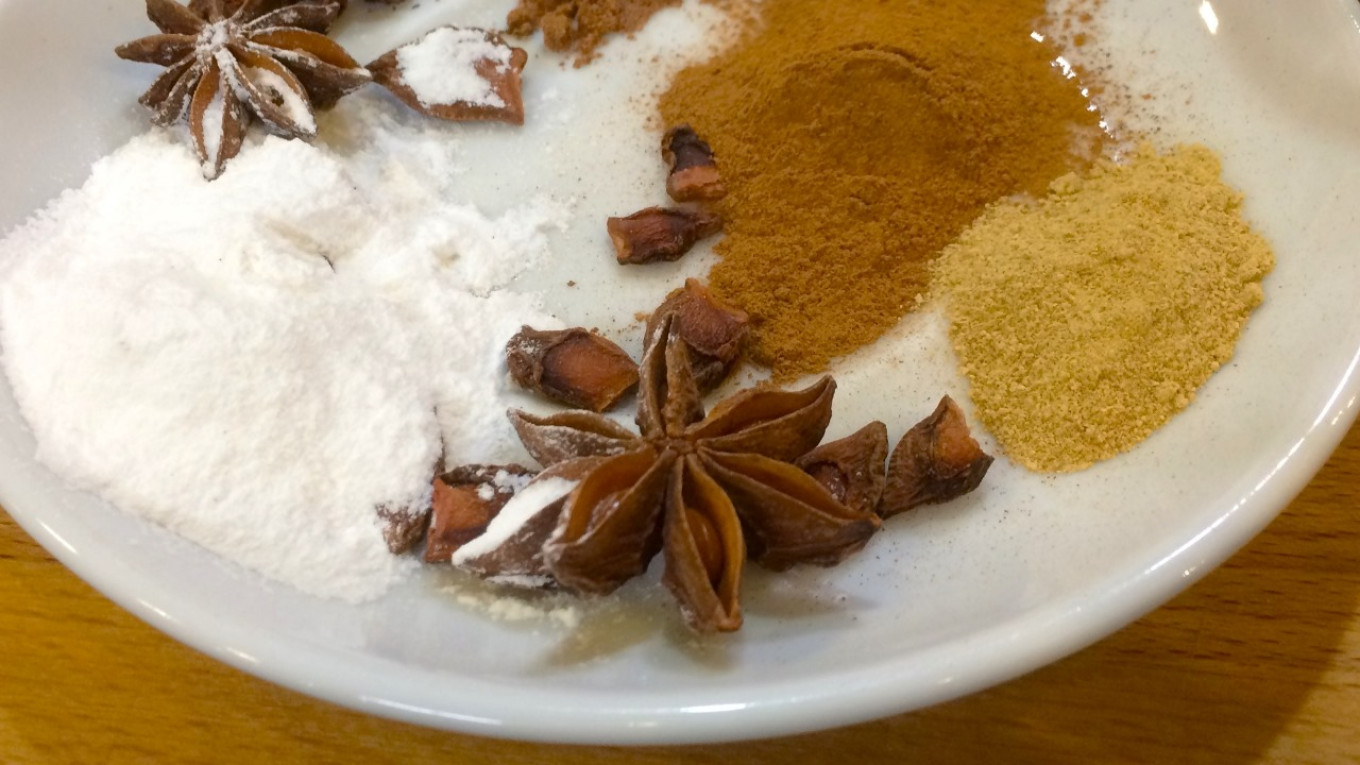
Vegetables, mushrooms, fish, grains and legumes were the main products on the table during fasts. What can be added to these basic ingredients to make boring dishes more flavorful? Especially in the winter season, when the fasts last for quite a long time.
Today, mace is rarely used. Its taste differs considerably from nutmeg and is much more subtle. In the past it was often used to season fish dishes. Mace really goes well with river fish — carp, crucian carp and catfish.
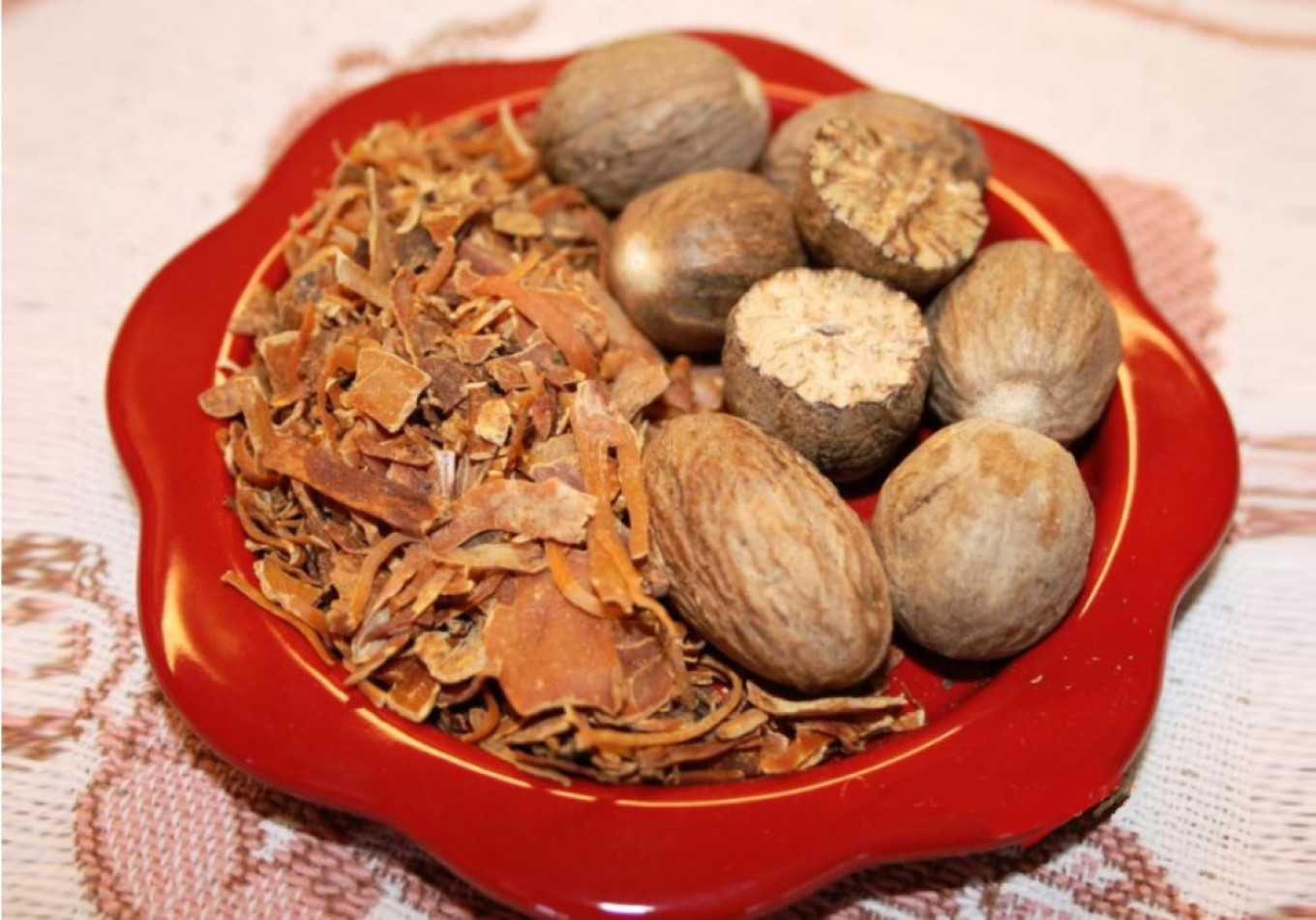
The vibrant but delicate, slightly sweet flavor of nutmeg is combined with many products. On fasting days, when the main ingredients are grains and legumes, a small pinch of the spice will add new flavor to beans, wheat porridge or ordinary semolina.
When a pinch of cloves is added to fish dishes, buckwheat, rice and baked apples, the dishes have a warm, spicy flavor. The cloves also aid digestion and restore strength after physical and mental stress.
Black pepper is a universal spice and can be used with equal success both for cooking and as a seasoning for cooked dishes. Black pepper "warms up" cold dishes and brings a piquancy to hot dishes.
That said, these spices are traditionally not very welcome in regular home cooking during periods of fasts. This is primarily because they “pique” the appetite, which isn’t appropriate during this time. On the other hand, there were no rules preventing the use of everyday plants to diversify the flavor of dishes: nettles, sorrel, pickled beets, cowslip, crab apple, licorice root, ground elder, dill, ramps. They could be preserved by drying or salting for the entire winter. Sauerkraut and pickle brine added a familiar flavor even to Lenten dishes.
Spices make ordinary fish flavorful. It’s easy enough to fry ordinary carp or stuff it with onions and buckwheat. The recipe we have chosen from the "Dictionary of Cooking" (1795) demonstrates a different approach to a familiar dish. However, the name of its sauce (today a very inappropriate word for Jewish) shall remain unstated.
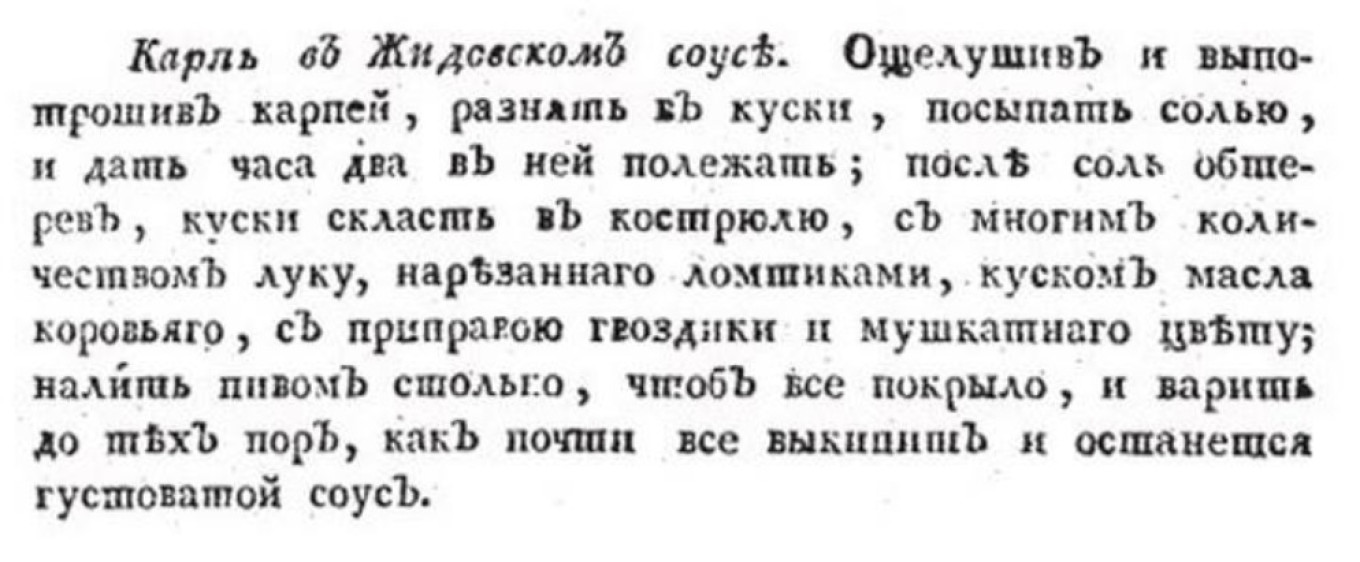
Carpe Diem: Spiced Fish of the Day
Ingredients
- 1 carp, 1.5-2 kg (3-4.5 lb)
- 200 g (7 oz) onions
- 500 ml (generous 2 c) light (unfiltered) beer
- 50 g (1.5 oz or 3 ½ Tbsp) butter
- 5 g (2 tsp) nutmeg
- 4 cloves
- Salt, pepper
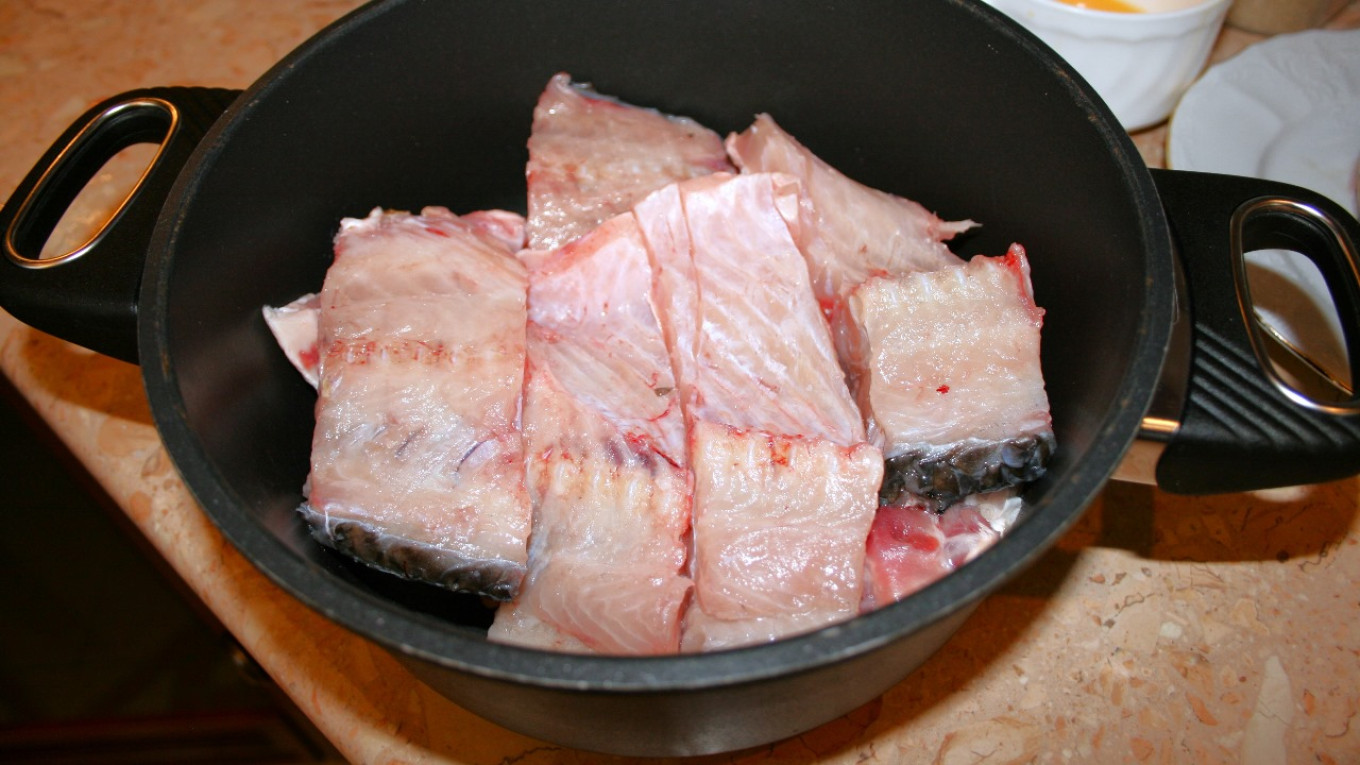
Instructions
- Clean the fish, gut it, wash and pat dry with a paper towel. Cut into pieces, sprinkle with salt and let it rest for at least 1.5-2 hours. This keeps the fish from falling apart when cooking.
- Do not throw away the head; cut it in half and put it on the bottom of a pot, preferably heavy-bottomed and thick-walled.
- Cut the onions into thin slivers.
- Rub the fish pieces with salt. Put them in the pot together with the sliced onions. Pour in beer, add butter, cloves and nutmeg.
- Bring to a boil over medium heat, reduce heat. Cook over low heat for at least 1.5-2 hours, until the onions have dissolved into the sauce.
- Let the dish "rest" and soak up the flavor. It reheats beautifully.
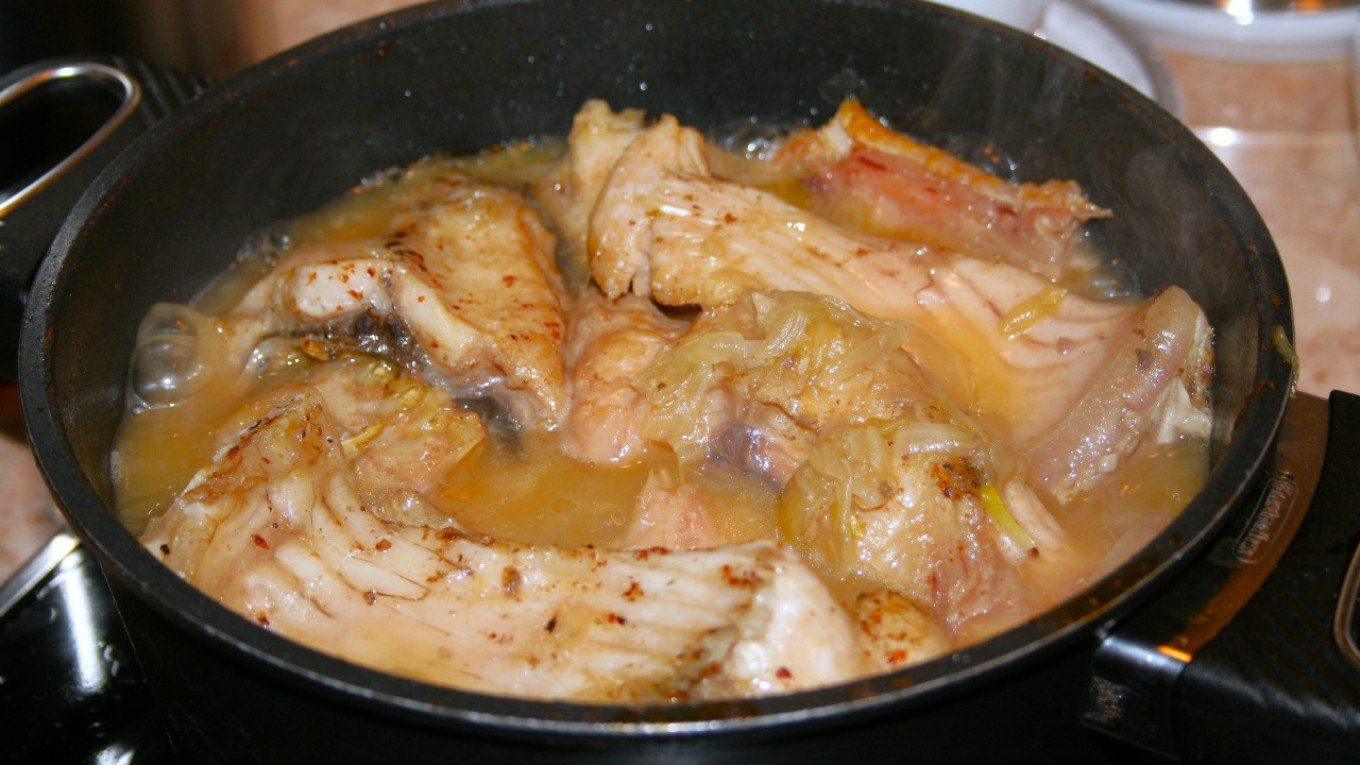
A Message from The Moscow Times:
Dear readers,
We are facing unprecedented challenges. Russia's Prosecutor General's Office has designated The Moscow Times as an "undesirable" organization, criminalizing our work and putting our staff at risk of prosecution. This follows our earlier unjust labeling as a "foreign agent."
These actions are direct attempts to silence independent journalism in Russia. The authorities claim our work "discredits the decisions of the Russian leadership." We see things differently: we strive to provide accurate, unbiased reporting on Russia.
We, the journalists of The Moscow Times, refuse to be silenced. But to continue our work, we need your help.
Your support, no matter how small, makes a world of difference. If you can, please support us monthly starting from just $2. It's quick to set up, and every contribution makes a significant impact.
By supporting The Moscow Times, you're defending open, independent journalism in the face of repression. Thank you for standing with us.
Remind me later.



